Is creatine monohydrate the same as creatinine?
Creatine monohydrate and creatinine are often confused due to their similar names, but they are distinct compounds with different roles in the body. Creatine monohydrate powder is a popular dietary supplement used to enhance athletic performance and muscle growth. Creatinine, on the other hand, is a waste product of muscle metabolism.
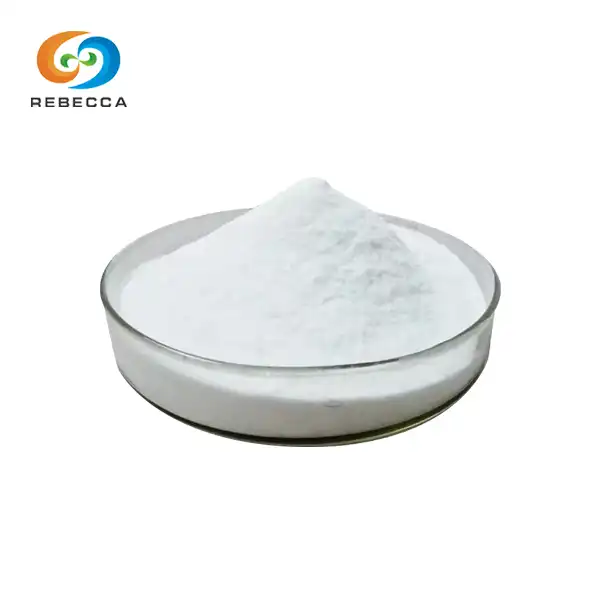
Product Name: Creatine Monohydrate
Creatine Monohydrate PowderSpecification: 99.5%-102.0%, HPLC
CAS: 6020-87-7
Creatine monohydrate Professional Manufacturer and Supplier
Free Sample Available, MSDS Available
Molecular structures: Creatine vs. Creatinine
Chemical composition of creatine monohydrate
Creatine monohydrate is a compound consisting of creatine bound to a water molecule. Its chemical formula is C4H9N3O2 · H2O. This supplement is synthesized in laboratories to mimic the naturally occurring creatine found in our bodies and certain foods. The addition of the water molecule enhances its stability and absorption in the body.
Creatinine's molecular makeup and differences
Creatinine, with the chemical formula C4H7N3O, is a breakdown product of creatine phosphate in muscle. It's structurally similar to creatine but lacks the water molecule and has undergone a cyclization process. This structural difference is crucial in understanding their distinct roles in the body.
How creatine converts to creatinine in the body
The conversion of creatine to creatinine occurs spontaneously in the body at a rate of about 1.5-2% per day. This process, known as non-enzymatic dehydration, happens when a water molecule is removed from creatine, forming a cyclic structure. The resulting creatinine is then filtered by the kidneys and excreted in urine. This conversion is a normal part of metabolism and doesn't indicate any health issues when occurring at typical rates.‘
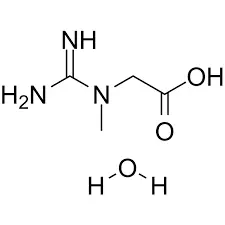
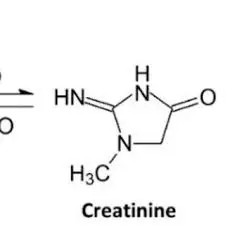
Metabolic roles: How our bodies use each
Creatine's function in energy production and muscle growth
Creatine plays a vital role in energy metabolism, particularly in high-intensity, short-duration activities. It acts as a rapid energy source by regenerating adenosine triphosphate (ATP), the primary energy currency of cells. This process allows for sustained power output during intense exercise, leading to improved athletic performance and muscle strength enhancement.
In muscle cells, creatine is phosphorylated to form phosphocreatine, which serves as an energy reservoir. During high-energy demand situations, phosphocreatine quickly donates its phosphate group to ADP, regenerating ATP and providing immediate energy for muscle contractions. This mechanism is crucial for activities requiring bursts of power, such as weightlifting or sprinting.
Creatinine as a waste product of muscle metabolism
Unlike creatine, creatinine serves no functional purpose in the body. It's simply a byproduct of muscle metabolism, produced at a relatively constant rate proportional to an individual's muscle mass. As muscles use creatine for energy, a small portion is converted to creatinine.
The body has no mechanism to reuse creatinine, so it's filtered out by the kidneys and excreted in urine. The consistent production and excretion of creatinine make it a useful marker for assessing kidney function and muscle metabolism.
Measuring creatinine levels for kidney health assessment
Creatinine levels in blood and urine are routinely measured as part of kidney function tests. Since creatinine is produced at a steady rate and filtered by the kidneys, its concentration in blood can indicate how well the kidneys are functioning. Elevated creatinine levels may suggest impaired kidney function, as the kidneys are not effectively removing this waste product from the blood.
However, it's important to note that creatinine levels can be influenced by factors such as muscle mass, diet, and exercise. For instance, individuals with higher muscle mass or those consuming creatine supplements may have slightly elevated creatinine levels without necessarily indicating kidney problems. This is why healthcare professionals consider multiple factors when interpreting creatinine test results.
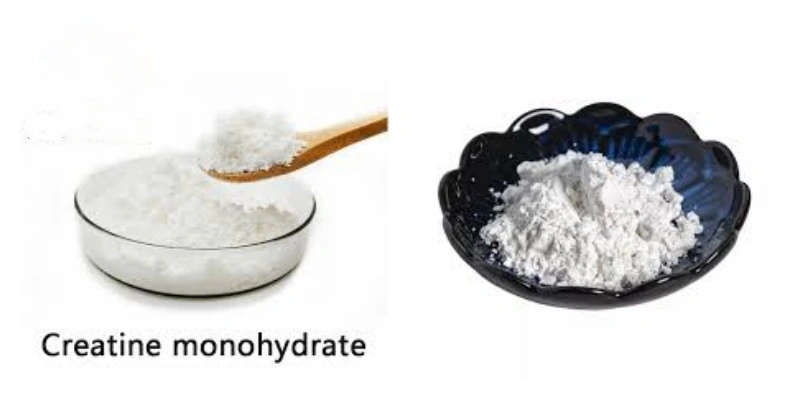
Supplementation: Benefits and potential risks explained
Creatine monohydrate's impact on athletic performance
Creatine monohydrate supplementation has been extensively studied for its effects on athletic performance. Research consistently shows that it can enhance power output, increase muscle mass, and improve recovery times. These benefits are particularly pronounced in high-intensity, short-duration activities like weightlifting and sprinting.
The ergogenic effects of creatine are attributed to its ability to increase phosphocreatine stores in muscles. This leads to faster ATP regeneration during intense exercise, allowing athletes to maintain higher power outputs for longer periods. Additionally, creatine supplementation may promote muscle protein synthesis and reduce muscle damage, contributing to improved recovery and muscle growth.
Safety profile and side effects of creatine supplements
Creatine monohydrate is generally considered safe when used as directed. Numerous studies have examined its short-term and long-term effects, finding no significant adverse health impacts in healthy individuals. However, some users may experience minor side effects such as water retention, bloating, or gastrointestinal discomfort, especially during the initial loading phase of supplementation.
It's worth noting that creatine supplementation may lead to a slight increase in creatinine levels, which could potentially affect kidney function test results. This increase is typically not a cause for concern in healthy individuals but should be considered when interpreting medical tests. As with any supplement, it's advisable to consult with a healthcare professional before starting creatine supplementation, especially for individuals with pre-existing health conditions.
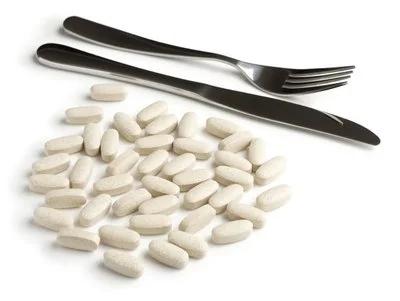
Why is creatinine not used as a dietary supplement?
Unlike creatine monohydrate, creatinine is not used as a dietary supplement. There are several reasons for this:
- Lack of physiological benefit: Creatinine serves no functional purpose in the body and cannot be converted back to creatine or used for energy production.
- Indicator of kidney function: As creatinine is used to assess kidney health, intentionally elevating its levels through supplementation could interfere with medical diagnoses.
- No performance-enhancing effects: Unlike creatine, creatinine does not contribute to ATP regeneration or muscle energy metabolism.
- Potential health risks: Excessive creatinine levels could potentially stress the kidneys and might be mistaken for kidney dysfunction.
For these reasons, creatinine remains solely a metabolic byproduct and a useful diagnostic tool, rather than a supplement with any potential benefits.
While creatine monohydrate and creatinine are related compounds, they serve distinct roles in the body. Creatine monohydrate is a valuable supplement for enhancing athletic performance and muscle growth, while creatinine is a metabolic waste product used to assess kidney function. Understanding these differences is crucial for athletes, health professionals, and anyone interested in nutrition and physiology. As research continues, our knowledge of these compounds and their impacts on human health and performance will undoubtedly expand.
Pure Creatine Monohydrate Powder Supplier
Shaanxi Rebeccia is a leading supplier of pure creatine monohydrate powder, committed to delivering high-quality products for the health supplement industry. Our production base utilizes state-of-the-art extraction, separation, and purification equipment, operating under strict GMP and ISO standards. We ensure rigorous quality control throughout the entire process, from raw material procurement to finished product delivery, guaranteeing the safety and efficacy.
Our product specifications include:
- Purity: 99.5%-102.0% (HPLC)
- CAS: 6020-87-7
As a professional manufacturer and supplier, we offer free samples and provide MSDS documentation. For inquiries about our product or to request a sample, please contact us at information@sxrebecca.com.
References
- Kreider, R.B., et al. (2017). International Society of Sports Nutrition position stand: safety and efficacy of creatine supplementation in exercise, sport, and medicine. Journal of the International Society of Sports Nutrition, 14, 18.
- Cooper, R., et al. (2012). Creatine supplementation with specific view to exercise/sports performance: an update. Journal of the International Society of Sports Nutrition, 9(1), 33.
- Wallimann, T., et al. (2011). The creatine kinase system and pleiotropic effects of creatine. Amino Acids, 40(5), 1271-1296.
- Gualano, B., et al. (2012). Creatine supplementation in the aging population: effects on skeletal muscle, bone and brain. Amino Acids, 42(4), 1349-1362.
- Wyss, M., & Kaddurah-Daouk, R. (2000). Creatine and creatinine metabolism. Physiological Reviews, 80(3), 1107-1213.
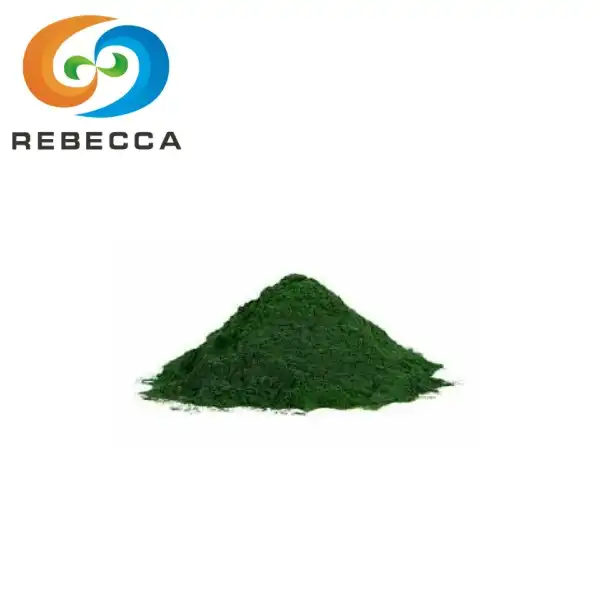

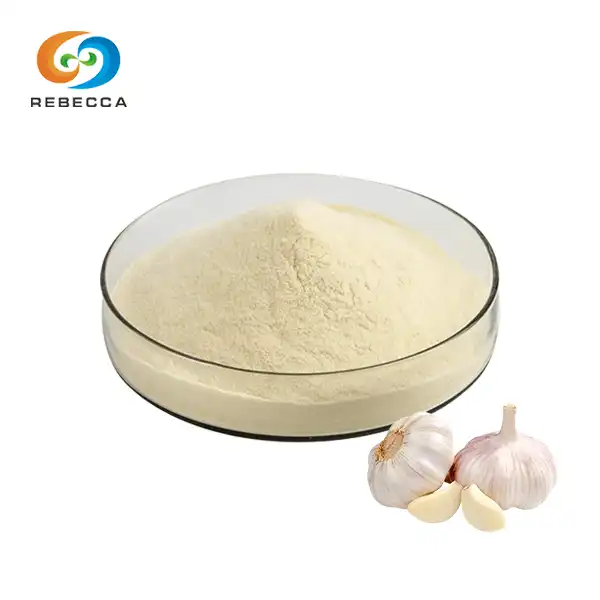
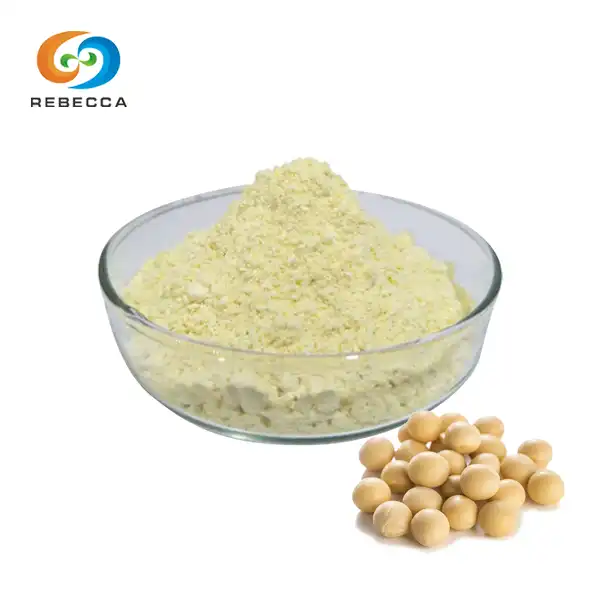
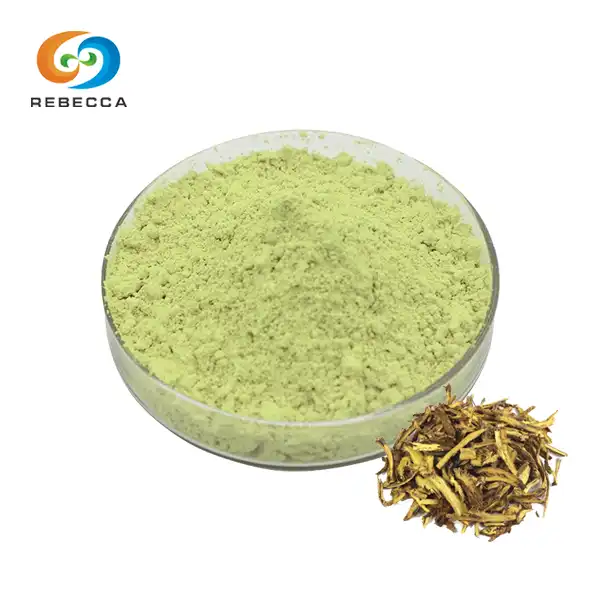

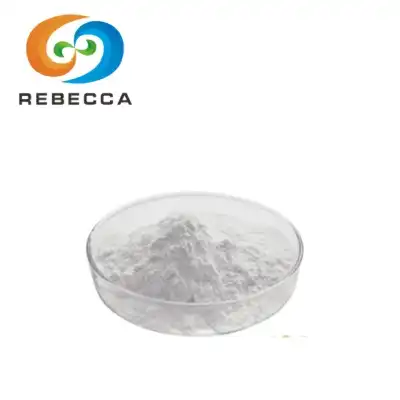
_1730079799361.webp)
